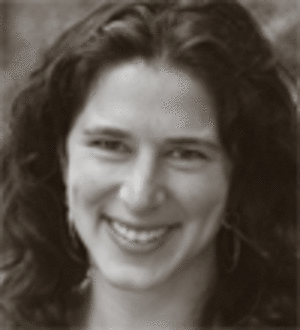Rebecca Traister
We're used to thinking of mothers-in-law as trouble-makers, and mine was no different. Judith Wadia (nee Botkin), an artist, community activist and environmentalist, was born to make trouble.
Always questioning and deeply (not to say maddeningly) opinionated, Judy opposed every rule she deemed wrong or ridiculous; when she decided that she knew how to make the world a better place, she’d stage an all-out battle – pushing, insisting, demanding, arguing, wheedling and, often, winning.
In the 1960s, Judy was the leader of the “mothers’ underground,” which fought to make Washington Square Park a more child-friendly space. In the 1970s, she spearheaded a fight for legislation that would encourage government investment in art; this battle ended with the passage of the New Jersey Arts Inclusion Act of 1978 (commonly known as the “percent-for-arts” program). Throughout the 1990s and until her death in 2011, Judy fought for green and community-friendly building practices in her home city of Weehawken; she succeeded in her campaigns to preserve the views from the Palisades, widen city sidewalks and require new construction along the Hudson to plant landscaped rooftops. At her memorial service, Weehawken mayor Richard Turner, who had often been on the other end of an argument, said, “The woman did not understand the word ‘no.’”
This newspaper article, published in 1964, is emblematic of so much that defined Judy. Here she is, her daughter at her side, three months pregnant with her son (who is now my husband). She’s in her beloved Washington Square Park, making art. This was a time when it was normal for a newspaper to describe a young mother and artist as “an attractive girl with an easy smile.” And here’s that attractive girl, amidst peers the paper is happy to dismiss as knitters of “tiny pink and blue woolen things,” crafting a human leg out of wire she has somehow persuaded aluminum company Alcoa to donate to her. Of course, she has promised Alcoa a sculpture of Christ (an arresting choice for a nice Jewish girl married to a Zoroastrian) but has decided instead that she’d like to make a naked pregnant woman’s body, fetus and all.
Rebecca Traister is a contributor to The New York Times Magazine and the author of Big Girls Don’t Cry: The Election that Changed Everything for American Women, which was named a Notable Book of 2010 by The New York Times. She also contributes to Salon, where she was a senior writer covering women in politics, media, and entertainment for eight years. She has also written for Elle, The Nation, The New York Observer, Vogue, The Washington Post, The Los Angeles Times, and other publications.





